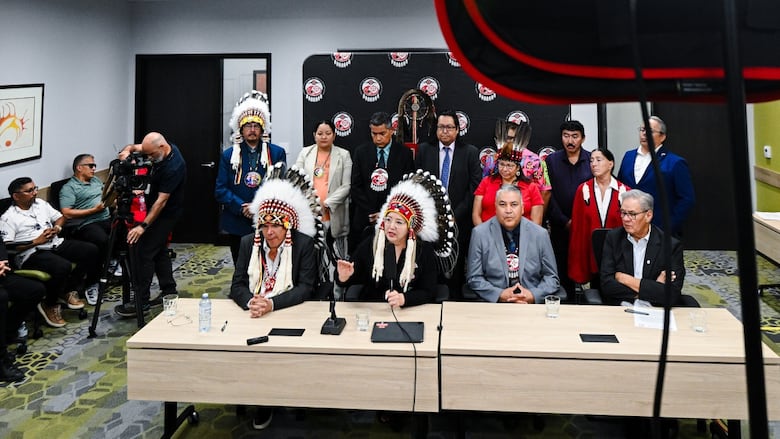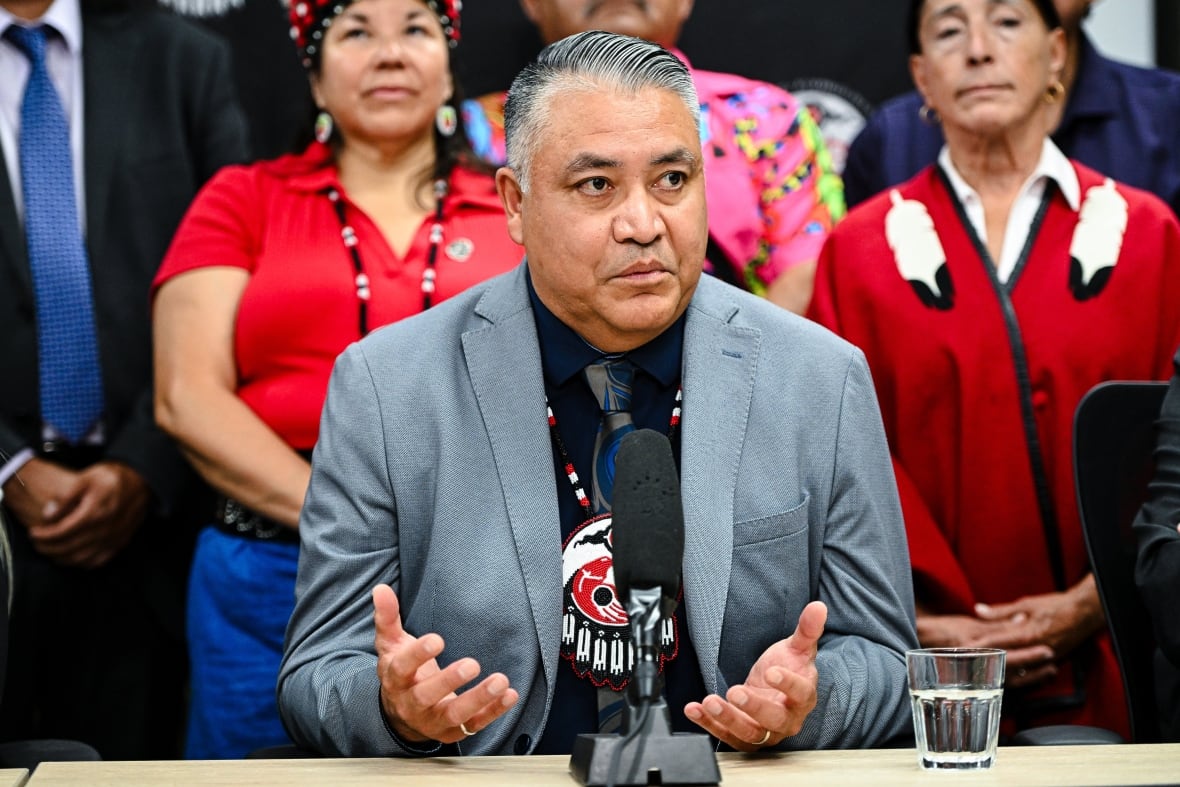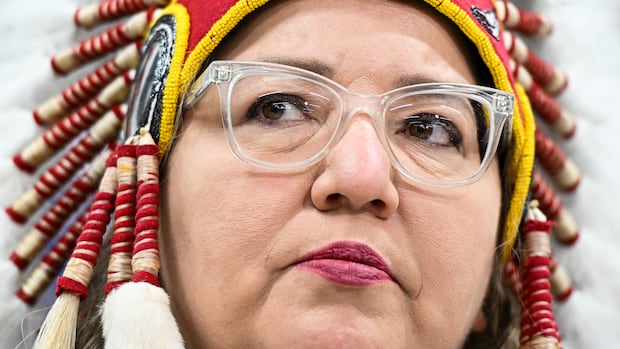First Nations arrive with some optimism — but mostly skepticism — as Carney's C-5 summit begins
Prime minister has called meetings with Indigenous leaders to allay concerns over major projects law

First Nations leaders from across Canada expressed some optimism but mostly skepticism and some cynicism on Wednesday as they arrived in Gatineau, Que., for a summit called to allay their concerns over the Liberal government's major projects legislation.
The meeting offers Prime Minister Mark Carney a chance to right what's been a rough start for his government's relations with First Nations, with the head of the Assembly of First Nations calling the meeting "a critical point in our nation-to-nation relationship."
As Brent Niganobe, chief of Mississauga First Nation in northern Ontario, walked out of a closed-door afternoon session with government officials at the Canadian Museum of History, he offered what has become a familiar complaint.
"This is not consultation," said Niganobe.
"They really had us prepare questions ahead of time; the questions only had so many characters that we could fill in."
The summit is the first of three Carney is holding with Indigenous leaders to try and allay their concern with Bill C-5, in particular the part that empowers cabinet to fast-track major projects deemed to be in the national interest.
Chiefs are concerned about the impact on their rights, and nine First Nations launched a constitutional challenge against the legislation on Tuesday.
Niganobe said it feels like First Nations were "an afterthought" after the bill was passed. His concern highlights the risk that with more than 600 chiefs invited to the summit, many may leave feeling unheard.
Manitoba chiefs echoed the sentiment at a news conference outside the meeting Wednesday afternoon, just before things began.
"This is not reconciliation. This is exploitation," said Chief Angela Levasseur of Nisichawayasihk Cree Nation.
"We want what was promised, we want what's owed, and we want a fair share of the wealth taken from our territories."
Agenda criticized
The government has described this as the beginning, not the end, of its consultation with First Nations on C-5.
Last month, in a speech to the Toronto Region Board of Trade, Natural Resources Minister Tim Hodgson said the goal of this week's summit "is to create certainty that catalyzes investment."
Such talk has some chiefs going into the meeting wondering whether the government wants to engage in good faith or whether the summit is a box-ticking exercise.
"We know they have a predetermined outcome," said Na'Moks (John Ridsdale), a hereditary chief of the Wet'suwet'en Nation, who was among the hereditary leaders opposing the Coastal GasLink project in northern British Columbia.
Na'Moks was already en route to Ottawa to raise concerns about the exclusion of� traditional leaders when he got an invitation at 9 p.m. on Tuesday, and was allowed to join.
Another chief blasted both the content and timing of the government's agenda for the meeting, which was also issued late Tuesday night.
"The proposed agenda includes a handful of chiefs known to be 'pro-industry' as speaking with federal government officials, while the rest of the more than 600 chiefs not being given the promised three minutes to address the prime minister," said a news release from Mikisew Cree Nation in Alberta on Wednesday.
"Rather than be bold, the prime minister is exercising a divide and conquer strategy," said Mikisew Chief Billy-Joe Tuccaro in the release.
At a news conference earlier in the day at the Assembly of First Nations' offices across the river in Ottawa, National Chief Cindy Woodhouse Nepinak seemed more positive. First Nations have stressed that they aren't anti-development, just concerned about the way the Carney government is pursuing it.
"Chiefs have made it very clear that First Nations consent for major projects is not optional," said Woodhouse Nepinak, whose organization advocates for First Nations countrywide.
She told reporters "we stand with the prime minister" in his fight against U.S. President Donald Trump's tariff war on Canada. She acknowledged many feel things were "rushed" but said she gives Carney the benefit of the doubt when asked if she truly believes he's acting in good faith.
Critics have noted repeatedly that the engagement began only after the bill was rushed through Parliament. But she also said she's heard from many chiefs who support the legislation, with projects of their own they'd like to see advanced.
Terry Teegee, the AFN's regional chief for British Columbia, described himself as "a bit more cynical" based on how the process has gone so far.
"Our rights can't take a back seat in terms of how decisions are made, and there have been long and hard fights that we had in British Columbia," he told reporters.

Garrison Settee, grand chief of Manitoba Keewatinowi Okimakanak, an advocacy organization for northern Manitoba First Nations, said communities just want to be part of the process.
"Economic reconciliation is not just a buzzword," he said.
While the leaders expressed some hope they will get firm commitments from Carney to address these issues, there was also the suggestion that Indigenous resistance could escalate.
"If the government doesn't want to work with us, I think it will be another Idle No More," said Chief Elwood Zastre of Wuskwi Sipihk First Nation in Manitoba.
Idle No More was a grassroots protest movement that erupted in response to the Harper government's legislative agenda in 2012. Carney's legislation has already been drawing comparisons to that era.



